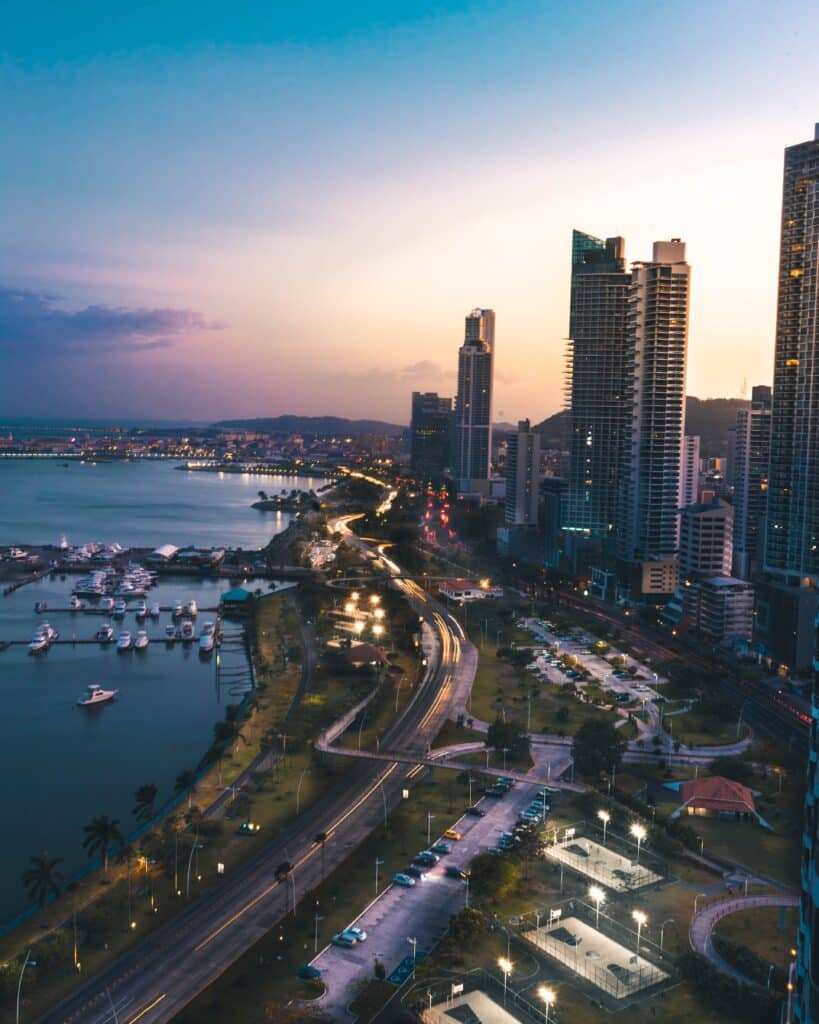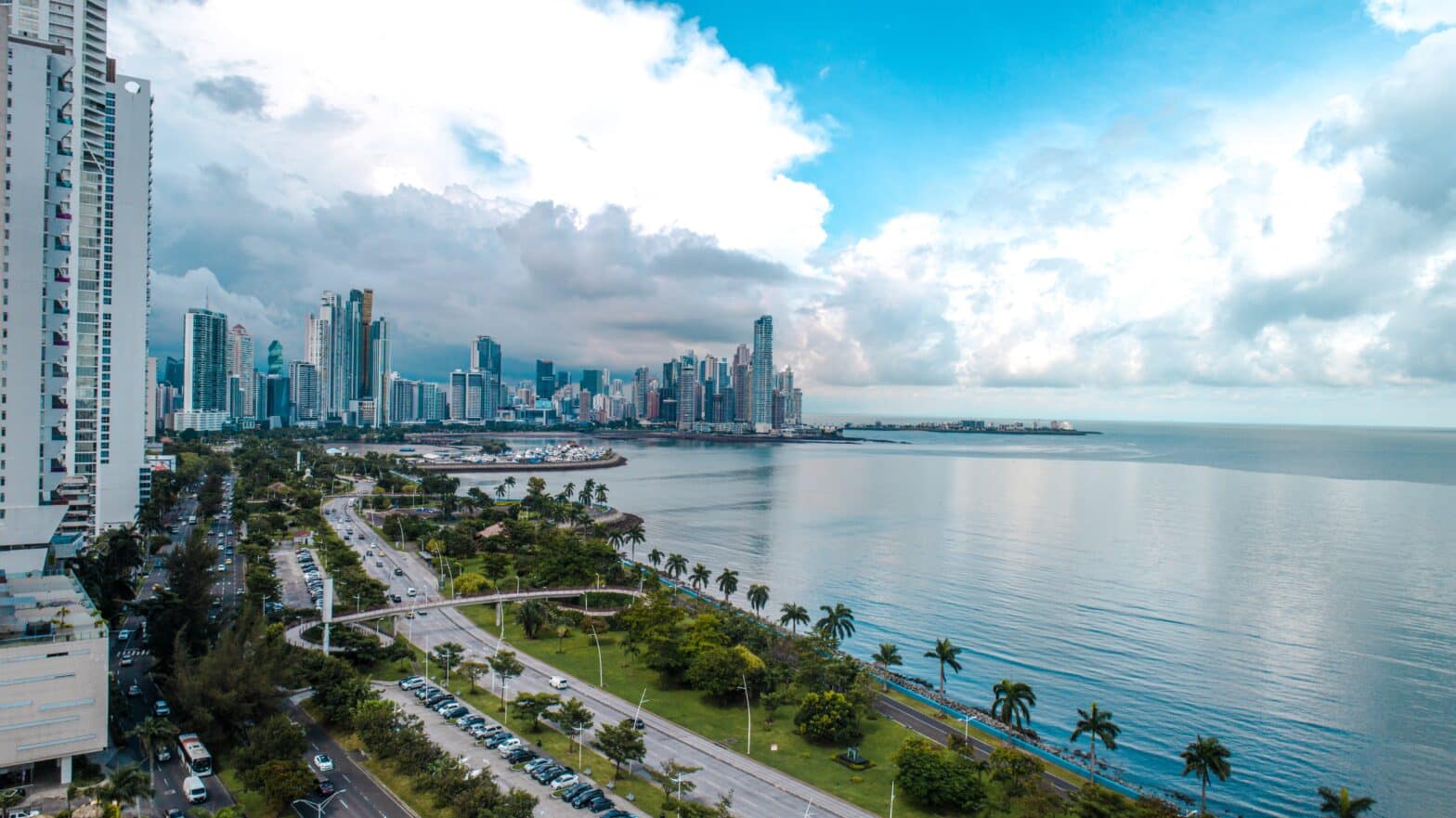Panama is a top destination for expats seeking a tropical lifestyle, financial advantages, and a strong international community. Located between the Caribbean and the Pacific, the country combines natural beauty with modern infrastructure and stable governance. Whether you’re planning to retire, invest, or start a new life abroad, Panama offers low taxes, affordable real estate, and year-round sunshine. In this guide, Foyer Global Health helps you navigate key aspects of living in Panama as an expat, from visas and healthcare to the best places to live and what daily life looks like.
Living in Panama: what are the advantages?
For many expats, living in Panama means enjoying a comfortable lifestyle in a tax-friendly, tropical setting. The country offers a compelling mix of practical benefits and quality of life advantages.
- Attractive tax and visa policies: With its territorial tax system, foreign-earned income is exempt from taxation. The pensionado visa offers generous benefits for retirees, while other visa options suit digital nomads and entrepreneurs.
- Affordable lifestyle: The cost of living in Panama is relatively low compared to Costa Rica or Western countries. Daily expenses and housing, especially outside Panama City, are budget-friendly.
- Thriving expat communities: Cities like Boquete, Coronado, and Bocas del Toro are home to large, active expat communities, making integration easier and social life vibrant.
- Dynamic economy and real estate market: Panama is a hub for international trade and logistics. This growth fuels opportunities in real estate, business, and employment across sectors.
- Year-round sunshine and natural beauty: With beaches on both coasts, lush highlands, and a warm tropical climate, the lifestyle in Panama supports outdoor living and travel.
Is it safe to live in Panama?
Most regions in Panama are generally safe, especially in well‑populated or tourist areas with visible security and local infrastructure. In Panama City, vigilance is wise in certain neighbourhoods, particularly at night. Places such as El Chorillo, Santa Ana and Tocumen see more incidents of robbery and assault.
The Darién region at the border with Colombia remains risky due to drug‑related crime and limited official presence; travel there should be planned carefully or avoided if safety resources are low.
Expats often enhance safety by choosing secure housing, using verified transport services, avoiding walking alone at night, keeping valuables out of sight, and staying aware of local safety advisories. Petty theft is more common than violent crime, and many expats report feeling secure once beyond the more notorious zones.
What kind of visa is required to move to Panama?
Visa options depend on duration of stay, purpose (work, investment, retirement), and nationality. Digital nomad visas valid for nine months (renewable once) are ideal for people working remotely. Investor visas allow business formation or investment in local real estate. The Paises Amigos residency programme gives citizens from friendly countries (France, Canada, Netherlands, Belgium) two‑year residence leading toward permanent residency if employed locally or owning property over USD 200,000.
Pensionado visas are specially crafted for retirees, offering discounts and benefits. Relocation agencies can help with securing visas, preparing documentation, and navigating local requirements such as proof of income, clean criminal record, and sometimes medical checks.
Where is the best place to live in Panama?
Panama City is the centre of culture, commerce, international real estate, and healthcare. Expats choosing the city enjoy modern amenities, good international schools, vibrant nightlife, professional opportunities, and access to high‑quality private clinics.
For those seeking nature, Boquete in the highlands offers cooler temperatures, lush landscapes, and a strong expat community. Bocas del Toro and Pedasi are ideal for beach lovers and those wanting a relaxed coastal lifestyle with year‑round sun and ocean activities.
Coronado and nearby suburbs offer a balance: easier access to city services plus more affordable housing and quieter living. When choosing a location, consider proximity to airports, local cost of real estate, community of fellow expats, and ability to access international healthcare or insurance‑accepted clinics.

Accommodation and real estate
Accommodation options in Panama are varied. In Panama City, modern condominiums, gated complexes, and luxury apartments with amenities such as pools, gyms, and 24‑hour security are common. Outside the capital, you’ll find more houses with gardens, smaller flats, colonial‑style homes, and more space per dollar. Rental negotiations are often possible, especially for long‑term leases or off‑peak season contracts. When renting, inspect the property in person, check for reliable water and electricity, verify maintenance and ownership, and ensure lease agreements clearly state rent, deposits, and utility responsibilities. Buying real estate may involve additional costs, taxes, and legal steps, so work with a reliable local real estate agent and understand local property laws.
Taxes in Panama
Panama operates under a territorial tax system: income sourced outside Panama is generally exempt, which benefits many expats who earn abroad. Local income is taxed on progressive scales; modest incomes fall into lower brackets, while higher earned income faces higher rates. Corporate entities operating domestically are taxed on profits, but free zones like the Zona Libre de Colón offer incentives for trade, storage, and export. The VAT (ITBMS) is around 7%, frequently excluded from listed prices in shops and restaurants. Expats should plan for taxes on local income, property investments, import duties, and any services that may attract local tax. Understanding social security obligations, if any, for self‑employment or local hiring is also important.
Healthcare in Panama
Panama’s healthcare system combines public and private providers. Public hospitals and clinics are improving in infrastructure and reach, but private facilities typically offer superior quality, shorter wait times, and more specialists, especially for expats. In major cities, doctors fluent in English are more common. For serious illnesses or emergencies, private international health insurance is highly recommended; many plans include medical evacuation. Preventative care, regular checkups, dental care, and mental health services are usually more accessible through private clinics. Expats should verify whether insurance policies include specialist visits, hospitalization, and international coverage.
Pros and cons of living in Panama
Pros
• Tropical weather year round with rich biodiversity, beaches, mountains, and natural parks that offer a variety in lifestyle.
• Lower cost of living than many Western capitals, especially for housing, local services, and daily food; strong real estate options.
• Good tax advantages for expats, especially for foreign‑earned income and businesses operating in free zones.
• Welcoming expat communities, with social opportunities, networks, and lifestyle diversity in both city and rural settings.
Cons
• Higher costs for imported goods, upscale housing in Panama City, and international schooling.
• Some bureaucratic delays when processing visas, permits or dealing with property registration.
• Healthcare outside big cities may be less consistent in quality; access to specialists may require travel or private insurance.
Experiences and lifestyle: what to do once settled
Once you have settled into Panama, there is much to enjoy. Explore the Panama Canal and the historic Casco Viejo district in Panama City. Visit natural reserves like Coiba or Cerro Hoya. Spend weekends in Boquete or the beaches of Bocas del Toro, enjoying diving, hiking or relaxing. Taste local cuisine: fresh seafood, tropical fruits, local coffee, and street food. Take part in festivals, community events, or try Spanish if you do not yet speak it. Connect with local expat groups or social clubs to share experiences and find support.
Final thoughts
Living in Panama as an expat can offer an extraordinarily rich and varied life. With careful planning around visa, cost, and healthcare, and by choosing real estate wisely, securing good insurance, and building a local support network, expat life in Panama can be both comfortable and exciting. Panama can be a place to live fully abroad, explore new cultures, and make lasting memories with security and peace of mind.
